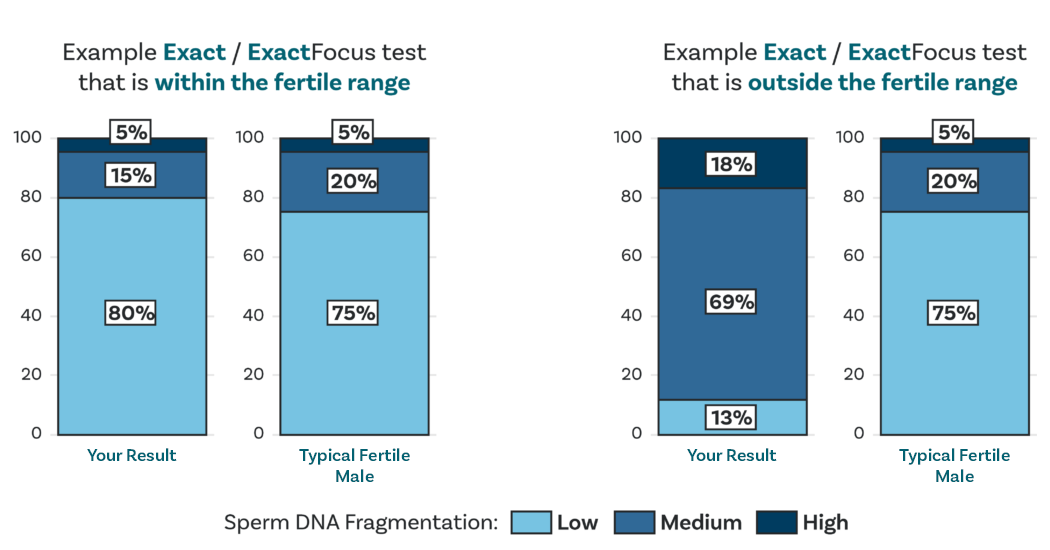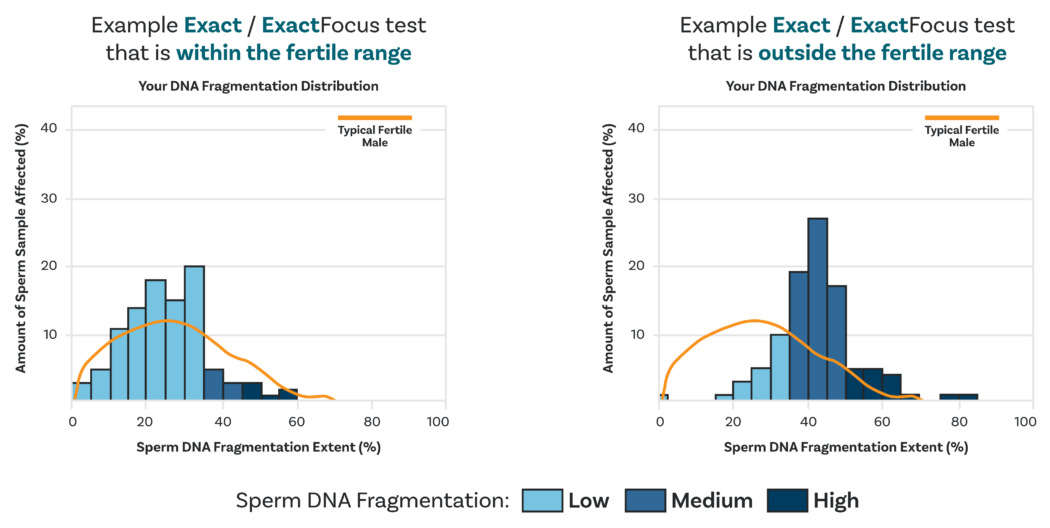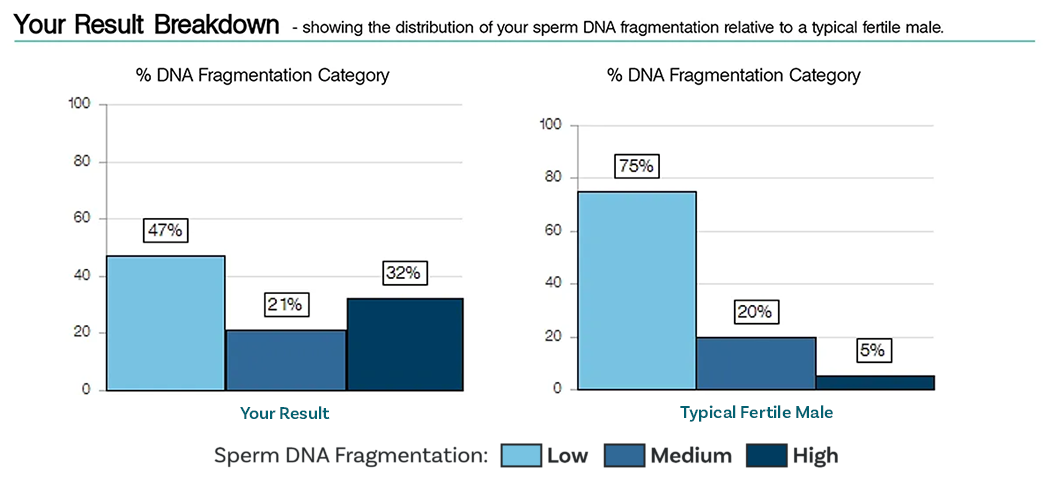Understanding your SDF Test Results
Our Sperm DNA Fragmentation (SDF) tests measure SDF damage, which could be a significant factor affecting your fertility. The results provide important information about your reproductive health to assist you and your clinician in making informed decisions about lifestyle changes or treatments to improve your fertility.
Exact Test Results
Extend Test Results
Exact & ExactFocus Report Overview
- Low sperm DNA fragmentation means the quality of the sperm is good
- Medium sperm DNA fragmentation means the quality of sperm is moderate
- High sperm DNA fragmentation means the quality of sperm is poor
Average Sperm DNA Fragmentation (SDF) score
An Average SDF score from 0%-31% is within the fertile range, whereas a score greater than 31% is outside the fertile range and has an increased risk of infertility.

% DNA Fragmentation Category
The split of your sample between each DNA fragmentation category can be directly compared to that of a typical fertile male, providing further insight into how the DNA fragmentation is distributed in your sample.

Your DNA Fragmentation Distribution
The DNA Fragmentation Distribution histogram provides a more comprehensive view of the distribution of damage across your sample.
The width of each of the columns shows the extent of the SDF damage category (e.g. 20-25% damaged) and the height of each column shows the proportion(%) of your sample that has that damage extent.
Additionally, the profile of a typical fertile male is also shown superimposed onto your results so you can see how your SDF damage distribution compares.

Can you improve an abnormal result?
Badly damaged sperm DNA is sometimes associated with lifestyle factors such as smoking, alcohol, recreational drug use, anabolic steroid use, and a poor diet. It may also indicate a medical issue, such as a varicocele (varicose vein on the scrotum) or infection.
Visit the following link for more information on how to improve your sperm quality.
Extend & ExtendFocus Report Overview
- Low levels of sperm double-stranded DNA fragmentation mean the quality of sperm is good
- Medium levels of sperm double-stranded DNA fragmentation mean the quality of sperm is moderate
- High levels of sperm double-stranded DNA fragmentation mean the quality of sperm is poor
Average Sperm Double Stranded DNA Fragmentation (SDF) score
An Average Double Stranded SDF score between 0% to 6% is within the fertile range, whereas a score greater than 6% is outside this range and has an increased risk of infertility.

Your DNA Fragmentation Category versus a typical fertile male
The split of your sample between each DNA fragmentation category can be directly compared to that of a typical fertile male, providing further insight into how the DNA fragmentation is distributed within your sample.

Can an abnormal result be improved?
Double-strand DNA break (dsDB) damage is thought to occur largely as a result of errors during the process of sperm creation. However, there is some evidence to suggest lifestyle factors such as caffeine intake are associated with higher levels of dsDB damage in sperm*.
Your fertility expert will be able to discuss available solutions with you, such as sperm selection techniques, genetic testing of embryos, or, where appropriate, donor sperm.
* T.E. Schmid, B. Eskenazi, A. Baumgartner, F. Marchetti, S. Young, R. Weldon, D. Anderson, A.J. Wyrobek, The effects of male age on sperm DNA damage in healthy non-smokers, Human Reproduction, Volume 22, Issue 1, 1 January 2007, Pages 180–187, https://doi.org/10.1093/humrep/del338
Receiving & interpreting your results
For clinical interpretation of your laboratory results (including Semen Analysis, Exact, and Extend tests) and advice on next steps, you should first contact your referring clinician. They are best equipped to review your results within the context of your and your partner’s full medical history.
If you are a self-referral or require general support regarding test cut-offs or other technical advice, please contact Examen directly on +44 (0)28 90 238915 or myresults@examenlab.com. We can arrange a consultation with one of our Clinical Advisory Consultants for an additional fee. This service requires further information from you.